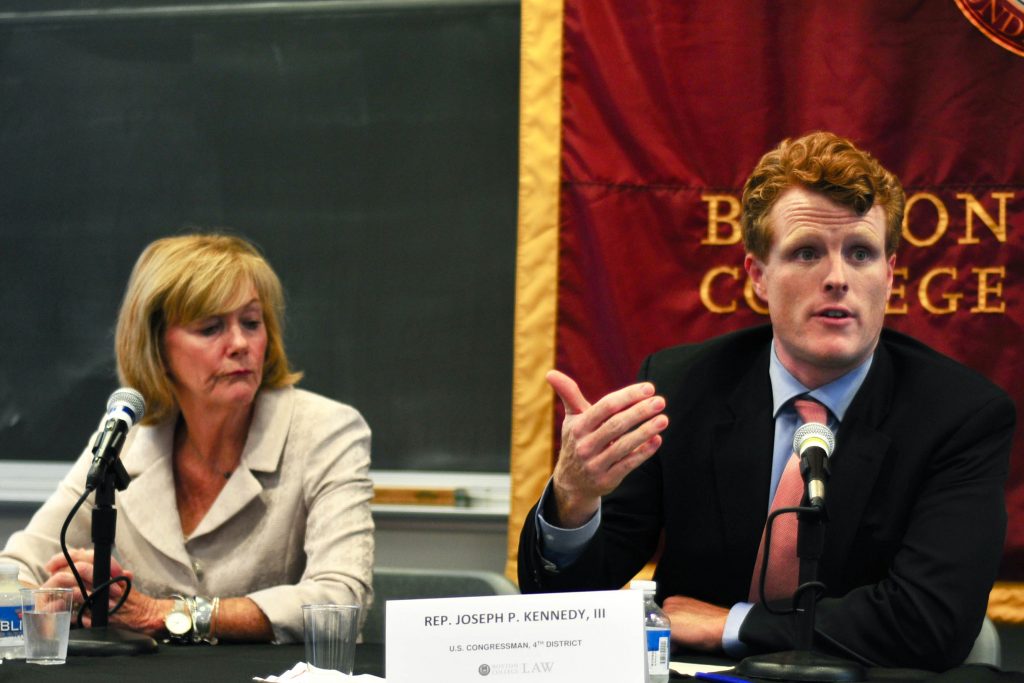Professor Michael Cassidy didn’t minimize the challenges facing the criminal justice system as he opened the Criminal Law Society’s “Rethinking Recidivism” event on September 16.
“The question is, can we do things more justly and smartly, reintegrate people into society, and reduce recidivism?” he asked.
Before turning to the panelists, Cassidy followed his question with a brief discussion of mass incarceration and the urgent need for programs to support reintegration of those who have been imprisoned. The United States has the largest incarcerated population on the planet as well as one of the highest recidivism rates.
Speaking first, Congressman Joseph Kennedy III (D-MA) returned to Professor Cassidy’s initial inquiry, simply answering “yes” to the question of whether the United States can do things in a smarter way. Kennedy proceeded to highlight the important role of the federal government in the process. Not only does the United States government incarcerate nearly 200,000 individuals, it also provides incentives and grants to assist states to engage in the criminal reform process and can streamline the various support systems on which many formerly incarcerated men and women rely.
When asked if he supported increasing resources for public defenders, Representative Kennedy was unequivocal in the need for additional funds for both public defenders and prosecutors. Not only would higher pay ensure higher quality talent, according to Kennedy, it also would ensure “shortcuts aren’t taken.” This goes for civil representation as well. Recounting the time he spent in a legal aid office during law school, Kennedy noted that civil issues have massive implications for the formerly incarcerated and the working poor.
The Honorable Sharon Donatelle, of the Massachusetts Superior Court, spoke to the choices judges make to help combat recidivism and assist in reintegration and the variety of tools officers of the court use to capture the fullest possible picture of the case in front of them. She also told the audience this issue was recently explored at great length by a committee of lawyers, probation officers, and judges in Massachusetts. The result was a comprehensive look at best practices for sentencing, which will further assist in the decision-making process.
Judge Donatelle noted that the goal of sentencing, besides keeping the public safe and providing for some level of accountability, it to promote rehabilitation for the offender. This is most effective when attorneys and judges are able to consider the facts of the crime as well as the offender’s background and circumstances. “Substance abuse and mental health are, in many instances, the driving force behind criminal conduct,” she said.
Both Representative Kennedy and Judge Donatelle expressed confidence in prosecutors’ ability to use their discretion effectively when making charging decisions and sentencing recommendations. Both have spent time as prosecutors themselves—Kennedy for a few years after law school, Donatelle for over two decades before she was nominated to the bench by Governor Charlie Baker.
Asked if they have any advice to offer the students in the audience, Judge Donatelle said being a public defender or a prosecutor is “one of the most gratifying jobs you will ever have.” Kennedy echoed her remarks, and asked students to place themselves in positions that will allow for a greater understanding of the justice system. From there, “you will make it what you want it to be, only if you choose to,” he said.


